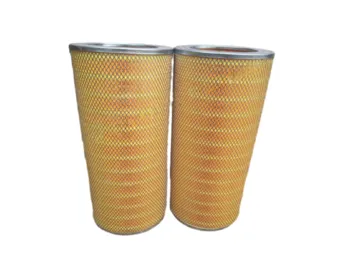 Tel:
+8615930870079
Tel:
+8615930870079
Nov . 29, 2024 16:27 Back to list
Durable Stainless Steel Filter Element for Efficient Filtration Solutions
Understanding Stainless Steel Filter Elements A Comprehensive Overview
Stainless steel filter elements are crucial components in various industrial applications, playing a significant role in ensuring the efficiency and reliability of filtration processes. This article aims to explore the features, benefits, and applications of stainless steel filter elements, highlighting their importance in maintaining fluid integrity across multiple sectors.
What Are Stainless Steel Filter Elements?
Stainless steel filter elements are designed to separate solid particles from liquids and gases. Made from high-quality stainless steel, these filters are characterized by their durability, corrosion resistance, and ability to withstand high temperatures and pressures. The material's inherent properties make stainless steel filter elements ideal for various applications, including chemical processing, food and beverage manufacturing, pharmaceuticals, and oil and gas industries.
Key Features
1. Corrosion Resistance Stainless steel is known for its excellent resistance to corrosion. This property makes it suitable for filtering liquids and gases that may contain aggressive chemicals. Unlike other materials, which may degrade over time, stainless steel retains its integrity, ensuring a longer service life.
2. High Strength and Durability Stainless steel filter elements can endure high pressure and temperature conditions, making them reliable in demanding environments. Their sturdy construction minimizes the risk of deformation or failure, which is critical in maintaining efficient operations.
3. Easy Cleaning and Maintenance Many stainless steel filters are designed for easy cleaning, often employing a backwashing technique or can be disassembled for thorough cleaning. This maintenance capability prolongs the filter life and reduces operational downtime, making it a cost-effective choice.
4. Versatility Stainless steel filter elements are available in various sizes, shapes, and filtration grades, allowing them to cater to a wide range of applications. Whether one needs a filter for micro-filtration or coarse filtration, stainless steel can provide suitable solutions.
stainless steel filter element

Benefits
1. Cost-Effectiveness While the initial cost of stainless steel filter elements might be higher than other materials, their durability and longevity often translate into lower total cost over time. Reduced need for replacement and lower maintenance costs contribute to enhanced economic benefits.
2. Environmental Impact Stainless steel is 100% recyclable, making stainless steel filters a more sustainable choice compared to plastic or other disposable filter materials. By choosing stainless steel, industries can reduce their environmental footprint.
3. Health and Safety In sectors like food and pharmaceuticals, hygiene is paramount. Stainless steel is non-reactive, which means it does not leach harmful substances, ensuring that the end product remains safe for consumption and use.
Applications
Stainless steel filter elements find applications in numerous industries. In the food and beverage industry, these filters are used to purify liquids such as juices, oils, and beverages, ensuring they are free from unwanted particles. In the pharmaceutical sector, stainless steel filters play a critical role in processes that require the utmost cleanliness and precision.
Moreover, in the oil and gas industry, stainless steel filtration systems are employed to separate impurities from crude oil or natural gas, helping to protect downstream equipment and processes from damage. Similarly, in chemical processing, they are vital for maintaining the quality of reactants and final products by preventing contamination.
Conclusion
Stainless steel filter elements are an indispensable component in many industrial applications, offering a combination of durability, versatility, and cost-effectiveness. Their corrosion resistance and high strength make them ideal for harsh environments, while their environmental sustainability emphasizes the growing trend towards greener options in manufacturing processes. With the continual advancements in filtration technology, stainless steel filter elements will remain a reliable choice, helping industries maintain high standards of quality and efficiency. As industries evolve, the demand for stainless steel filters will likely keep rising, solidifying their place in the future of filtration solutions.
-
Nano Fiber Technology: Revolutionizing Cartridge Dust Collector FiltersNewsAug.06,2025
-
How Activated Carbon Air Cartridges Eliminate OdorsNewsAug.06,2025
-
Dust Filter Cartridge Handling Fine Particulate MatterNewsAug.06,2025
-
Cartridge Dust Collector Filter for Welding Fume ExtractionNewsAug.06,2025
-
Activated Carbon Filter Cartridge Effectiveness Against VOCsNewsAug.06,2025
-
Activated Carbon Air Filter Cartridge Benefits ExplainedNewsAug.06,2025

 Email:
Email:





